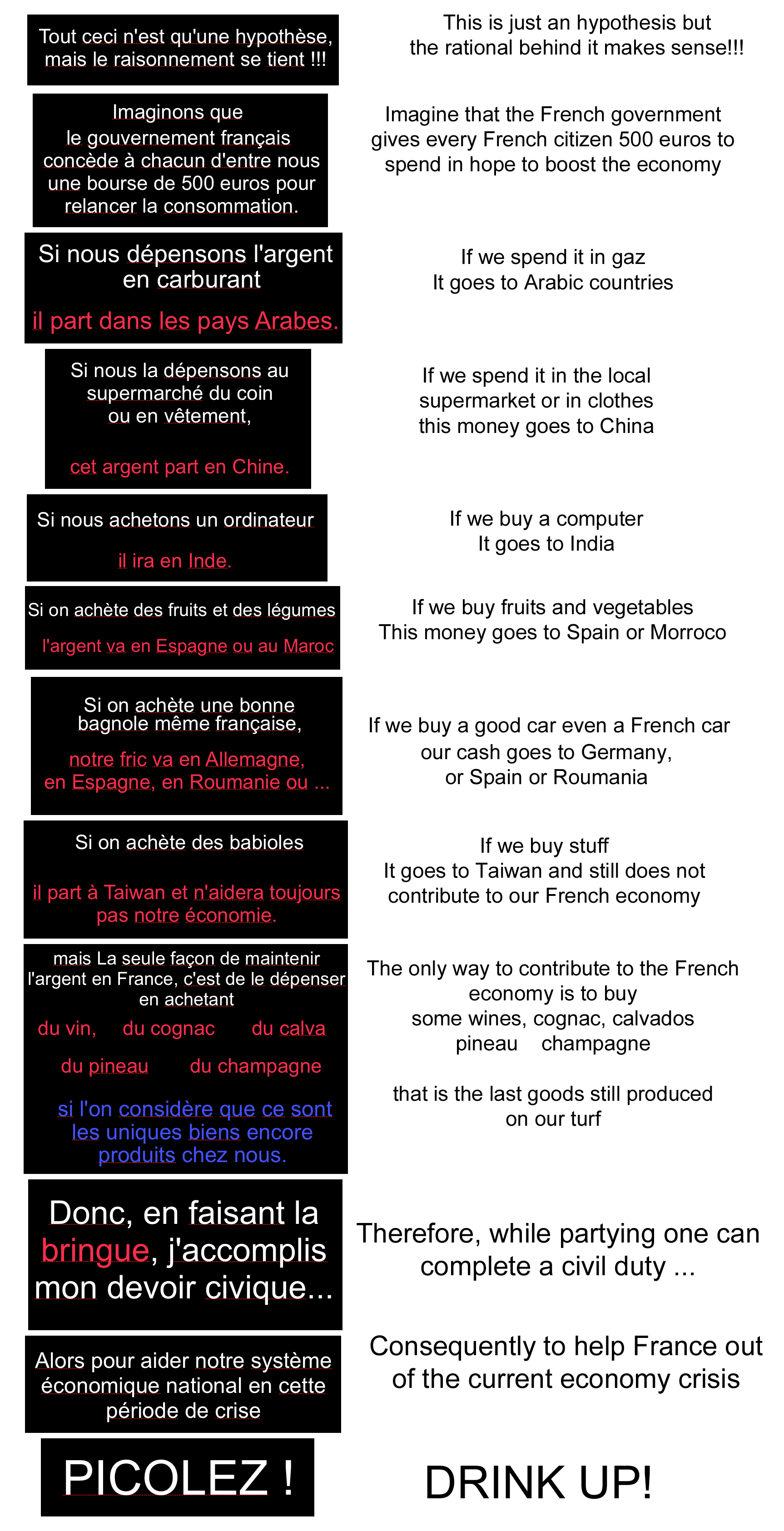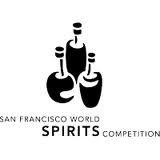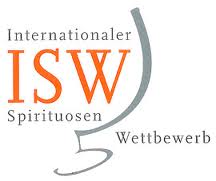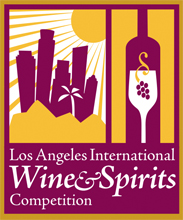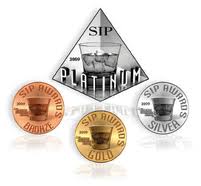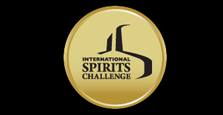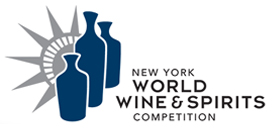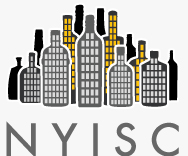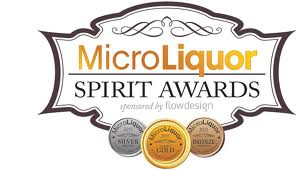There are many spirits competitions and ratings in the world. From the local wine & spirits fairs to the international event organized with selected judges highly regarded for their experience and know-how in the industry, and also independent raters who are ratings spirits in their own media such as Dias-Blue or Pacult.
I will only reference the spirit events which are internationally representative and commonly used as reference by the industry trades and and also by consumers. The concept of rating spirits is often an offspring of ‘Wine ratings’ which they are 100 times many more numbers and are much more prominents. Most of these events/competitions were originally wine competitions which opened up to spirits or encouraged spirit submissions for ratings.
World Spirits Competition in San Francisco

- World Spirits Competition San Francisco
First, I would reference the World Spirit Competition in San Francisco (SFWSC) because it is 100% a spirit competition event. I do not think the wine and spirits should be in the same competition. It would be like a magazine called ‘cars & bicycles’ or ‘meat & pastries’. I think the less you know about wine & spirits the more you think they have things in common, and the more you know about them the more you see the differences and that is why I have a preference for events which are 100% dedicated to spirits only. The rating of wines and spirits requires similar skills but it takes a different mindset, approach and expectations.
This World Spirit Competition
www.sfspiritscomp.com is carried out in San Francisco, it is not that old in comparison to many wine events. It was started in 2000 by Anthony Dias-Blue. Mr Blue is a highly recognized wine & spirits journalist who originally made his name as the Wine & Spirits Editor of Bon Appétit, one of the largest food publication in the United States.
He also broadcasts on radios, KFWB and KLSX FM in Los Angeles and on WCBS radio in New York. He is co-owner and Editor-in-Chief of Tasting Panel Magazine and is a frequent contributor to Decanter, Robb Report, Celebrated Living, Virtuoso Life, and C Magazine. Mr. Blue is the author of The Complete Book of Mixed Drinks and its companion, The Complete Book of Spirits. Interestingly, Mr Blue is the executive director of the New York World Wine and Spirits Competition, which is another representative competition that I am presenting below, but also the San Francisco World Wine Competition.
The World Spirits Competition in San Francisco rates about 1200 entrants annually from 60 countries on average (exactly 1215 in 2012 from 60 countries) with "blind" tastings involving panels of expert judges selected each year from the spirits industry including world-renowned mixologists, spirits buyers, and media from across the United States
The +: the earlier in the year the better. Consumers prefer recent/this year winners than last year winners. WSC is in March and results are in April. this competition is seriously done, executed and rather representative. All spirits competitions are subjective. This is the best competition in my opinion.
The -: judges are not international judges for the most part and rather represent the experts in the USA. From my experience I can say that not all world experts are the same. It would be nice to see international experts in the panel to offer a more worldly view, mostly when the competition is called World Spirits etc ... Little appearance/representation in international trade events, for instance, Vinexpo, etc... They do appear in the Wine & Spirits Wholesaler of America trade show which is the equivalent of VINEXPO but for the USA only.
The International Wine and Spirit Competition (IWSC)
www.iwsc.net

- International Wine and Spirit Competition
This competition is the most famous competitions has it has been seriously organized and supported by the majors of the industry. I think also it benefits from having been established in London by a British and a German person in 1969 so it has benefited from a solid organization and structure from the foundation. Europeans have taken a serious lead on this judging/rating a long time ago. The statistics and numbers are huge 30,000 submissions, 80 countries, 250 judges coming from all over the world, chemical analysis, and etc... But it is hard to decipher how much of this is dedicated to spirits. I guess about 1000 submissions for spirits.
This competition is also greatly enhanced by its world partner and media support mostly from the Drinks Business magazine, but also by its pertinent participation in the world’s leading trade exhibitions, such as
Vinexpo,
ProWein and
Vinitaly.
Plus the IWSC has a huge experience in getting media coverage and offers promotional supports trough their networks of retail/industry connections. It is a powerful organization - no doubt. Far more powerful than the World Spirits Comp. in San Francisco presented above, and far older too.
The +: they are powerful and their name means business in the alcoholic beverage industry.
The -: lack of legitimacy for the spirits ratings in particular as this is fundamentally a wine competition. I think it is and it will always be a wine event in priority!

- Internationaler Spirituosen Wettbewerb
This competition was started in 2004 in Germany, and it is a subsidiary of Meininger Verlag in Neustadt, one of Germany's oldest specialist publishing houses and run by the 4th generation family. It specialises in wine and beverage publications for different target groups.
A special ISW supplement with a print run of more than 100,000 copies reports in detail on prize-winning spirits and their producers and is included with all the wine, beverage and hospitality trade magazines published by Meininger Verlag.
The ISW judges are renowned experts from wine & spirits institutes, producers, retailers and restaurateurs who have daily experience with spirits.
The +: this is a well organized competition that seems very professional.
The -: mostly from Europeans for Europeans.

- Los Angeles International Wine and Spirits Competition
This competition was initially for wine only and founded in 1939. In 2007, it began receiving entries for spirits. Awards are provided for gold, silver, and bronze medals. In 2009, there were 199 entries with 179 awarded medals.
The +: situated in the middle of the capital of world entertainment. Well organized event, business frendly, ... increasingly referenced. Great longevity since 1939.
The -: the spirit rating is clearly an off-spring of the wine event, and one could say this part of the event is in its introduction stage.

- Beverage Testing Institute
The Beverage Testing Institute is based in Chicago, Illinois and was founded in 1981 with its initial focus on wine but later branching into the world of spirits and beer. They use a dedicated tasting laboratory in order to create consistent results and minimize external distractions. Each periodic tasting is conducted at the same time of day under identical conditions. The panelists are selected from the professional world of restaurants and publications under the leadership of director Jerald O'Kennard. Not all spirits are given a rating. Those of sufficient merit are awarded a point score between 80 and 100.
The institute seeks to produce "fair and impartial wine reviews for consumers." Buying guides have appeared in All About Beer, Epicurious.com, International Wine Review, Wine Enthusiast, Restaurant Hospitality, The New Yorker Magazine, and Wine & Spirits.
The +: highly recognized in the trade and used to promote to consumers. So it is working and it is clearly an official source. The spirit division is very seriously carried out and broken into departments: the whiskies, the bandies, the eaux-de-vie, ... Just from the fact that they divide and organize ratings of spirits by family and rate them at different times and per family says a lot. I like the scientific ‘kind of’ style this organization has. I like the fact that they clearly mentioned that not everyone gets to win something. No idea if it is true but it sounds good.
The -: rather expensive and many boutiques brands do not apply which makes it a safe heaven for the spirits produced by large corporations.

- SIP Awards
The Spirits International Prestige (SIP) Awards takes a new approach to beverage competitions by linking producers to the people who matter the most - The Consumers. Hence, SIP provides one of the most valid measures of beverage quality in the world. By working directly with consumers, SIP offers a more realistic opinion and more market driven point of view.
Their consumer judging panel strips away the layers of elaborate marketing, brand recognition, price point disparity, and most importantly, the bias of established judges. Spirits are judged in a blind tasting review on the characteristics of Aroma, Taste, and Finish.
The +: finally consumers are the judges.
The -: only a few consumers are judging, and therefore even if the validity of the research methodology is high, the reliability of the data set is poor because 100s people would have to judge to make it reliable. Reliability is how accurate is your data and validity is about how effectively you are measuring really what you are trying to measure. Therefore, one question: are all consumers equal. Answer is no. Do I want Gin lovers who would never buy a cognac evaluate my cognac. That is the advantage of using experts to judge because they are supposed to know.

- International Spirits Challenge
The International Spirits Challenge is based in the UK, and it is very respected since 1995. The competition is founded on a rigorous and independent judging process, which serves to encourage the high calibre of spirits, designs and campaigns entered into the competition each year. Receiving more than 1,000 entries from nearly 70 countries worldwide makes the ISC is a truly global competition. It is supported by most of the world’s leading spirits producers as the international standard for quality and excellence.
The ISC has evolved over recent years to recognize four key areas of the industry; Tasting, Design & Packaging, Marketing and Retailer Awards.
Marketing Awards: The aim of the ISC Marketing Awards is to recognise and celebrate the invaluable impact marketing has on creating and sustaining brand value which will ultimately improve profitability. Judges are drawn from marketing and advertising agencies assess how well the campaign met the brief, overall brand strategy, evidence of innovation and creativity, positive results and statistics and return on investment.
. Best Launch Campaign
. Best Advertising Campaign
. Best Digital & Social Media Marketing Campaign
. Best Experiential Campaign
. Best PR Campaign
The International Spirits Challenge is home to some of the finest palates in the world. Each of our judges must have demonstrated their skill and knowledge in spirits before joining a specialist panel, and include master blenders, master distillers, importers, distributors, buyers, consultants, journalists, authors and independent experts.
The +: it is a well respected competition in Europe and the USA. For some reasons, some people do not trust the competitions in the USA, so they would rather leave it to foreigners. So it is a good choice for a balance of US/Europe ratings.
The -: Results are in November.
---> The Competitions in New York, USA
There is no surprises that New York be the place for an international spirit rating event. The question is which one as there are several and it is not clear which event is dominating the scene.

- New York World Wine and Spirits Competition
This event is like a mirror image of the World Spirits Competition in San Francisco, but with wine too. Perhaps this is explained by the fact that Anthony Dias-Blue is the executive director in both places. This competition occurs at the same time and is associated with the Bar and Restaurant Trade Show.
The +: New brands trying to get traction in the USA have to start in New York. It is not a law but a recognized rule of thumb. Because this show is tied up with key trade partners to jump starts your distribution that is bars and restaurants (called on-premise in the trade) it makes sense to participate. The idea is getting 2 birds with 1 stone.
The -: this is a new competition pretty much over-shadowed by the World Spirits in SF, and also it is including wines where spirits usually play the second roles.

- New York International Spirits Competition
This competition is different in that the judges are spirits buyers from the industry, which gives a nice twist in the sense that most other competitions classically employs experts. Experts may be more representative of the experts’ tastes rather than the trade or consumers. Another interesting aspect is that the competition is grading similar products and categorizing them also based on pricing. This rule is perhaps even more significant for cognacs as one may find for instance XOs at 70 euros and other at 150 euros, or Extras at 150 euros and other at more than 1000 euros. In other words one may find that a highly rated cognac at 100 euro may be more realistic than a highly rated cognac at 1000 euro.
The +: the rating method allows for new facets and perhaps originality. A spirit rating competition only.
The -: this competition does not have the national coverage and support found in the other competitions.
Other Spirit Rating Organizations:

- Micro Liquor Spirit Awards
MicroLiquor Spirit Awards is the World’s First Spirits Competition for Small Brands - Brand/Label sells less than 50,000 9-liter cases annually. MicroLiquor Spirit Awards sponsored by Flow Design provides professional and confidential feedback on product quality, packaging and design, and overall value.
Liquor entrepreneurs, brand managers and marketing professionals have the opportunity to gain entrepreneurial thought and insight to their brands while enjoying the benefits of competition.
Anthony Dias-Blue offers a rating through his magazine the Tasting Panel Magazine in the USA. See more information above.
F. Paul Pacult has a tremendous reputation in the spirit review and he publishes his ratings in his members only Spirit Journal. Look for the annual review edition in particular. His reviews also appears in the Wine Enthusiast Magazine.
Wine Enthusiast Magazine (Wine Spectator does the same) publishes a magazine and other media to promote the appreciation of both wines and spirits. It is headquartered in New York and founded in 1979. Currently, spirits reviews are provided by F. Paul Pacult, who does tastings in a controlled environment. Results are given a point score.
www.winemag.com

